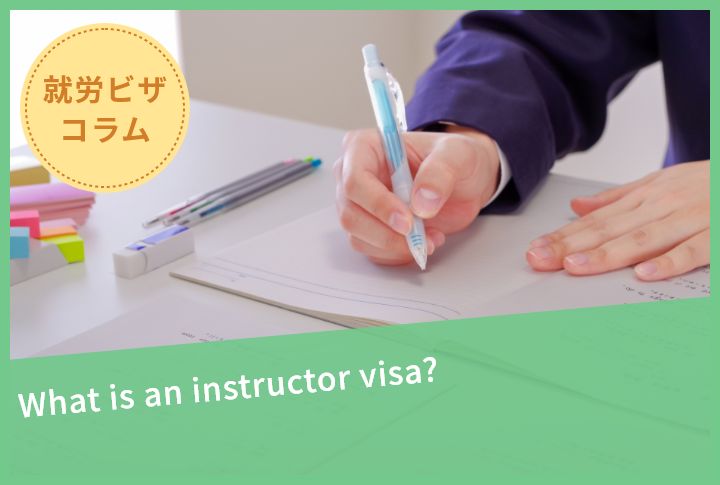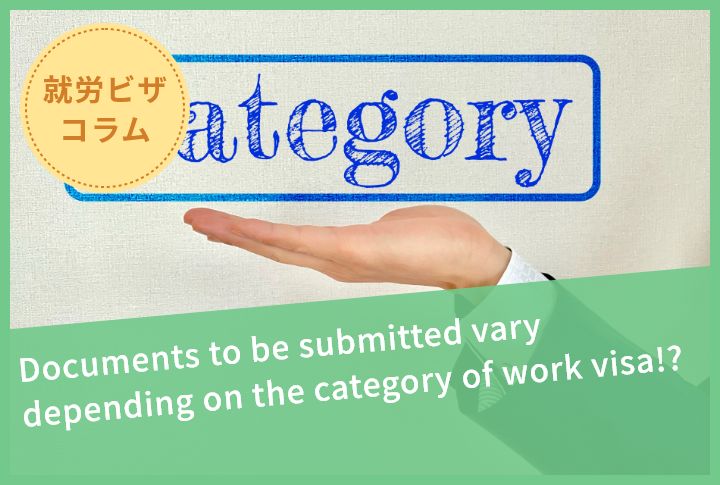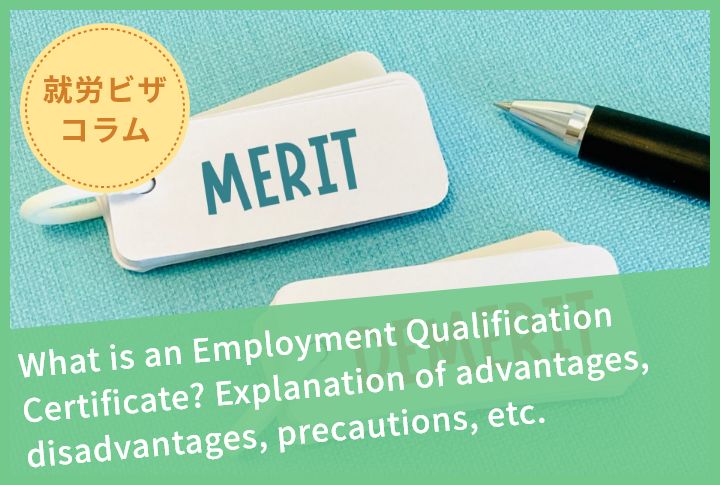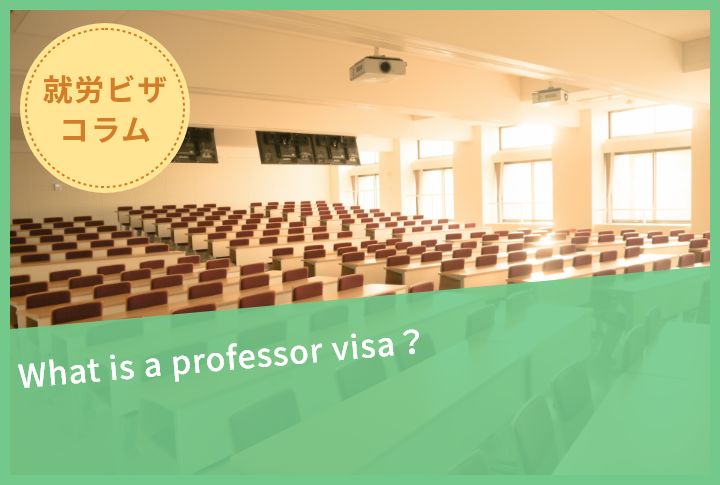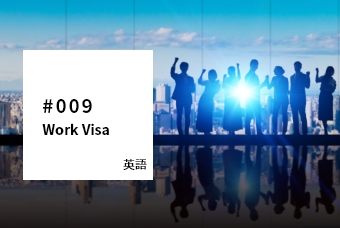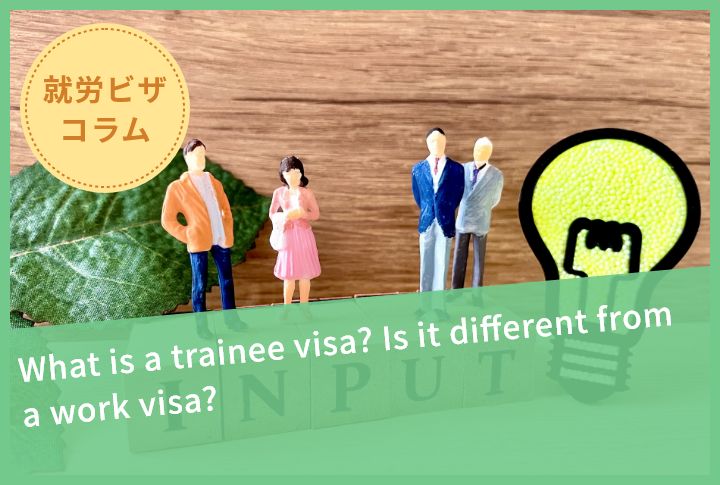【Case Study】N1 designated activities visa (working visa for Japanese university graduates)
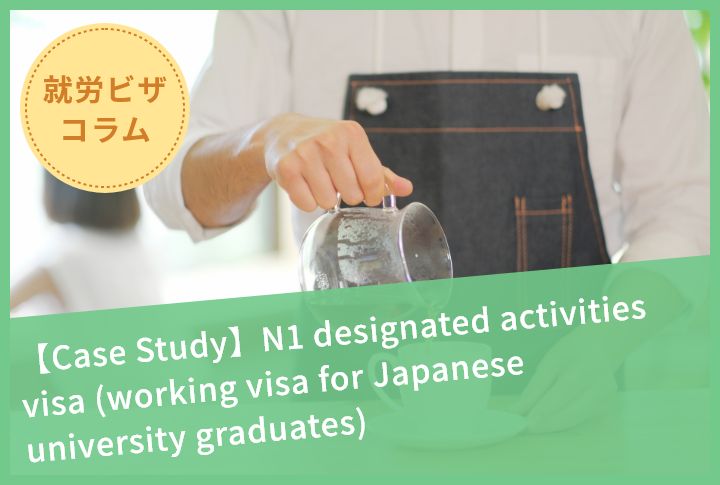
Mr. A, an international student going to a Japanese university, works part-time as staff who serve customers at a restaurant with permission to engage in activity other than that permitted under the status of residence previously granted. Mr. A works earnestly and competently, so the store manager asked him to work as a full-time employee after graduation. Since Mr. A is comfortable at the restaurant and likes to talk with people, he wants to accept the offer. However, he has heard that it is difficult to get a work visa for working at a restaurant. Will Mr. A be able to obtain a work visa?
In order to work in Japan, it is necessary to obtain a work visa. Typical one is a status of residence of engineer/specialist in humanities/international services. Many of the foreigners working in Japan, except for technical intern trainees, are resident with a status of residence of engineer/specialist in humanities/international services. However, the services that can be provided under this type of status of residence are limited to certain advanced work, which was making it difficult for foreigners to work in Japan and for Japanese companies to employ foreigners. As such, the difficulty of obtaining a work visa had been one of the reasons why the employment rate of international students at Japanese companies was low. To support the employment of international students with the aim of improving the employment rate of international students in Japan, the government has launched new measures. That is the N1 designated activities visa that came into effect on May 30, 2019.
Below, we will explain the N1 designated activities visa while comparing it with the status of residence of engineer/specialist in humanities/international services.
Index
1. What kind of work are permitted under a N1 designated activities visa?
The N1 designated activities visa was established to make it easier for international students to find jobs in Japan, but what kind of jobs will be allowed? The guidelines published by the Immigration Services Agency state that “services that require smooth communication using Japanese.”
Working passively by simply understanding and following work instructions given by employers does not fall under the “services that require smooth communication using Japanese.” It has to be the work with elements of “translation/interpretation” or the work that requires to actively communicate with a third person in Japanese language to have mutual communication with others.
In other words, it must be a service that is based on communication with others using Japanese, such as serving customers.
The visa of engineer/specialist in humanities/international services is applicable to the work above a certain level with an academic background. Moreover, such work above a certain level has to be the main work. If it is only a part of the entire work, this type of visa will not be granted. Therefore, it was considered difficult to obtain a visa of engineer/specialist in humanities/international services in the service industries and retail industries.
The enactment of N1 designated activities visas will greatly ease such situation.
An N1 designated activities visa does not allow you to engage in adult entertainment businesses or business activities that require qualifications under the law (businesses that require an occupational license), even if those business require Japanese language skills.
The N1 designated activities visa adds limitation as “being recognized as utilizing the wide range of knowledge and applied abilities acquired at Japanese universities or graduate schools.” This means that the content of the work to be engaged in must include some work above a certain level based on the academic background, etc. which is covered by the status of residence of engineer/specialist in humanities/international services, including cases where the applicant is expected to engage in such work in the future. It is okay even if the main part of the work is not above a certain level, which is required for visas of engineer/specialist in humanities/international services, but it is not permitted to engage only in simple work. As such, N1 designated activities visas require at least a part of the work to be more than a certain level.
Having said that, it is also okay if you are expected to engage in work above a certain level in the future. For example, you were hired as the restaurant staff when you first joined the company, but you are expected to be in charge of the accounting of the restaurant in the future. Such case is subject to a N1 designated activities visa.
The guidelines include the following specific examples of applicable work. Please refer to it for specific cases including notes on non-applicable work.
A. To be employed by a restaurant and engage in work of serving customers which is combined with interpretation service for foreign customers (including work of serving Japanese customers).
* It is not permitted to engage only in washing dishes in the kitchen and cleaning.
B. To inform or instruct technical intern trainees and other foreign employees of work instructions given by Japanese employees in a foreign language in the course of the factory line operation, and also to enter the line to carry out work.
* It is not permitted only to follow instructions for the line operation.
C. To engage in work of serving and selling to foreign customers at a retail store which is combined with interpretation work, while purchasing and making plans regarding products.
* It is not permitted to engage only in the product display or store cleaning.
D. To engage in work of setting up and updating home pages in a foreign language which is combined with translation work, or to engage in work as bellhop or door man who also serve as an interpreter (a guide) for foreign customers or an instructor for other foreign employees at a hotel or an inn (including serving Japanese customers).
* It is not allowed to engage only in room cleaning.
E. To be employed by a taxi company and make plans for tourists (to attract customers), while working as a taxi driver and concurrently an interpreter who provides tourist information (including working as a normal taxi driver).
* It is not permitted to engage only in the vehicle maintenance or cleaning.
F. To provide guidance to foreign employees and technical intern trainees, while communicating with users including foreign users and engaging in care operation at a nursing facility.
* It is not permitted to engage only in the cleaning of the facility or washing of clothes.
2. Who are eligible for N1 designated activities visas?
Since the purpose of the N1 designated activities visa is to support the employment of excellent international students who have graduated from Japanese universities or completed graduate schools in Japan, international students must meet the following requirements (1) and (2) to obtain this visa.
(1) Requirement concerning educational background
The student must have:
– graduated from a 4-year university in Japan; or
– completed graduate school in Japan.
(2) Requirement concerning Japanese language proficiency
The student must have:
– passed N1 of the Japanese Language Examination;
– scored 480 points or more in BJT; or
– majored in Japanese at a foreign university, etc.
3. Precautions for employing foreigners with N1 designated activities visa
At the time of hiring, Japanese companies (including sole proprietors) must check whether each foreigner meets the requirements of educational background and the Japanese language proficiency. There are also some other points to note.
First, the employment permitted by N1 designated activities visas is limited to full-time employment. N1 designated activities visas do not allow working part-time.
Second, only direct employment is applicable, and N1 designated activities visas are not permitted for dispatched employees.
Third, applicants must receive no less reward than a Japanese national would receive for comparable work. If there is a wage regulation, the salary must be determined according to the same criteria as Japanese people who graduated from universities and/or graduate schools. The company must not treat foreigners differently regarding wages (including standards for salary increases) just because they are foreigners.
Lastly, in case of a company that is obliged to join social insurance or a sole proprietor with 5 or more full-time employees, social insurance must be joined.
4. Precautions for changing jobs with N1 designated activities visa
When a foreigner with an N1 designated activities visa changes jobs, the procedure is different from that of a foreigner with a status of residence of other work visas such as a visa of engineer/specialist in humanities/international services.
In the case of a visa of engineer/specialist in humanities/international services, when changing jobs, you need to notify the regional immigration bureau of your resignation and of new workplace within 14 days from the date of resignation and the start date of working respectively. Whether or not the new job matches the status of residence will be determined when applying for extension of period of stay.
On the other hand, if you have an N1 designated activities visa, you must apply for permission to change your status of residence when you change your jobs. In the case of N1 designated activities visa, the specific institution where you will belong (i.e., the new workplace) will be specified by the visa. Therefore, if you are changing the institution where you belong along with the change of occupations, your activities do not match your visa any more. Accordingly, you will need to apply for permission to change your status of residence and undergo immigration examination when changing jobs.
5. Summary of N1 designated activities visas (working visas for Japanese university graduates)
With the new N1 designated activities visa, excellent international students who have graduated from Japanese universities or graduate schools will be able to obtain a status of residence for those occupations that had been hardly allowed until today. Japanese companies can now hire excellent foreigners at restaurants, convenience stores, supermarkets, manufacturing industries, etc., although it was difficult to hire foreigners as full-time employees at those places before.
It is estimated that thousands of international students will apply for N1 designated activities visas every year. It is still a small step to solve the human resource shortage, but it is a big step forward in the policy concerning foreigners.








